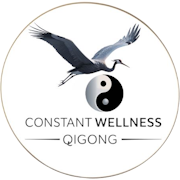Sound Healing
Introduction to Sound Healing Sound Healing is an ancient practice that uses vibrations and frequencies to promote physical, emotional, and spiritual well-being. In traditional Chinese medicine (TCM), sound healing is deeply connected to the Five Elements: Wood, Fire, Earth, Metal, and Water. Each element resonates with a specific sound frequency and is associated with certain organs and emotions. By aligning with these sounds, one can restore balance and harmony in the body, releasing blockages and encouraging healing.
The Five Elements in Chinese Philosophy
1. Wood Element (Mu)
o Organs: Liver, Gallbladder
o Emotion: Anger, Frustration
o Healing Sound: "Shhh"
o Description: The Wood element represents growth, flexibility, and renewal. It governs the liver, which processes emotions like anger. Using the healing sound "Shhh," you can calm the liver and release built-up tension, promoting inner peace and emotional balance.
2. Fire Element (Huo)
o Organs: Heart, Small Intestine
o Emotion: Joy, Overexcitement
o Healing Sound: "Ha"
o Description: The Fire element embodies transformation, passion, and warmth. It governs the heart, and the sound "Ha" is used to cool excessive heat and balance joy. Sound healing for the Fire element brings calmness, joy in moderation, and emotional stability.
3. Earth Element (Tu)
o Organs: Spleen, Stomach
o Emotion: Worry, Overthinking
o Healing Sound: "Hoo"
o Description: The Earth element represents stability, nourishment, and grounding. It governs the spleen, and the healing sound "Hoo" helps dissolve worry and mental overactivity. Practicing this sound brings clarity and a sense of groundedness, nourishing both body and mind.


4. Metal Element (Jin)
o Organs: Lungs, Large Intestine
o Emotion: Grief, Sadness
o Healing Sound: "Sss"
o Description: Metal governs the lungs and is associated with the ability to let go, especially of grief. The sound "Sss" helps clear the lungs, promoting the release of sadness and encouraging acceptance and emotional clarity. Sound healing with Metal restores a deep sense of breath and emotional resilience.
5. Water Element (Shui)
o Organs: Kidneys, Bladder
o Emotion: Fear, Insecurity
o Healing Sound: "Wooo"
o Description: Water is the element of wisdom, flow, and adaptability. It governs the kidneys, the storehouse of vital energy (Qi). The sound "Wooo" helps soothe fears and anxieties, allowing for the free flow of Qi throughout the body, enhancing vitality and inner strength.
The Practice of Sound Healing Incorporating sound healing with the Five Elements can be as simple as meditating with the healing sounds or practicing Qigong and breathing exercises. By resonating with these elements, one can restore balance to the organs and release stored emotions that may cause disharmony. The vibrations of sound can penetrate deep into the body, stimulating energy flow, promoting relaxation, and supporting overall well-being.
What is Self-Healing with Qigong?
Welcome to Constant Wellness, where we guide you on a transformative journey towards holistic health through Qigong and meditation. Self-Healing with Qigong is an ancient practice that harnesses the power of Qi (energy) to restore balance and promote wellness. Rooted in Traditional Chinese Medicine, this technique combines gentle movement, focused breathing, and mindful meditation to support your body's innate ability to heal itself.
Self-Healing with Qigong is a powerful practice that can be seamlessly integrated into your daily routine. By engaging in specific Qigong exercises designed to balance your energy, you can enhance your physical health, improve mental clarity, and foster emotional well-being. This practice is suitable for individuals of all ages and fitness levels, making it an accessible and effective tool for achieving overall wellness.


Benefits of Self-Healing with Qigong
Integrating Self-Healing with Qigong into your wellness routine offers a multitude of benefits, enhancing your physical, mental, and emotional health. Here’s how this practice can positively impact your life:
1. Physical Health Benefits:
o Boosted Immune System: Regular Qigong practice strengthens your immune system by improving the flow of Qi throughout your body. Enhanced immune function helps you better resist illnesses and recover more quickly from health issues.
o Pain Relief: Qigong techniques can alleviate chronic pain conditions such as arthritis, back pain, and headaches. By promoting relaxation and improving circulation, Qigong supports the body’s natural pain-relief mechanisms.
o Improved Energy Levels: Practicing Qigong helps to balance and increase your energy levels, reducing feelings of fatigue and enhancing overall vitality. This can lead to better performance in daily activities and an overall sense of well-being.
2. Mental and Emotional Well-being:
o Stress Reduction: One of the key benefits of Self-Healing with Qigong is its ability to reduce stress and anxiety. The practice encourages relaxation and helps to calm the nervous system, leading to a significant decrease in stress levels.
o Enhanced Mental Clarity: The meditative aspects of Qigong improve focus and mental clarity. By incorporating mindfulness and deep breathing, you can achieve a sharper, more alert mind.
o Emotional Balance: Qigong supports emotional health by addressing energy blockages and promoting a positive mental state. Practitioners often report increased feelings of peace, joy, and emotional resilience.
3. Unique and Transformative Experience:
o Holistic Approach: Qigong provides a comprehensive approach to wellness by addressing the mind, body, and spirit. This holistic method supports overall balance and harmony within, leading to improved quality of life.
o Empowerment and Self-Care: By practicing self-healing with Qigong, you take an active role in your health and well-being. This empowers you to manage and improve your health naturally, fostering a sense of self-care and personal responsibility.
4. Scientific Insights and Practical Outcomes:
o Evidence-Based Benefits: Research supports the effectiveness of Qigong in improving health outcomes. For instance, a study published in the Journal of Clinical Psychology found that Qigong practice can reduce symptoms of anxiety, depression, and chronic pain.
o Real-Life Case Studies: Numerous case studies have highlighted the positive impact of Qigong on various health conditions. Participants in clinical trials have reported significant improvements in physical health, emotional well-being, and overall quality of life after incorporating Qigong into their routine.

